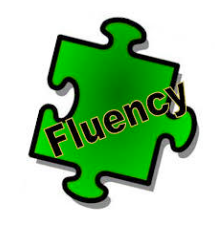What is Fluency? When Does It Matter?-November 2019
- Jordan Stackhouse

- May 14, 2021
- 3 min read

Greetings friends, fellow language learners, adventurers, teachers and need-greaters!
Much has happened since our last newsletter! We spent the months of September and October preparing for some very exciting assignments. We just finished the first one of this tour in Doula, Cameroon. There, 55 eager instructors speaking 19 different tongues were trained to teach their languages to all who want to serve in areas of need in their territory. Here are some of the languages represented: Yemba, Toupouri, Sango, Medumba, Maka’a, Igbo, Ghomala, Fulfuldé, Eton, Spanish, Douala, Boulou, Bassa, Bamoun, Bafia, ASL. Most of them have literature and good news published on www.jw.org -which, of course, we were all delighted to see reach the milestone of 1000 published languages! What an accomplishment! Cameroon is on the verge of civil war at the moment whichhas caused a great migration of refugees fleeing the conflict. Many of our friends have had to escape to the cities in the south. A large number of these dear ones speak West African Pidgin English. One meeting we went to had almost 300 in attendance. Just a few years ago they were not encouraged to use their native language, rather they were told to speak “book English.” But now they have a translation office and much literature in their mother tongue, including a song book. We were moved to tears as they all joyfully and enthusiastically sang out with all their heart. The roof trembled at the sound and harmony. We had participants from Gabon and Equatorial Guinea in our seminar as well and the increase, particularly from Spanish speaking Equatorial Guinea, was so encouraging.

Well, we will be in Ivory Coast for another seminar and then on to Chandigarh, India in December. Our courses in 2019 are filling up so if you know of ones who are interested in the training, please kindly direct them to www.purelanguage.ca. We would be delighted to meet them and give them the tools to pursue their goals!

What is Fluency? When Does It Matter?
The definition of fluency, like art, lies in the eye, or rather, the ear of the beholder. Eva Sandoval notes in her internet article, “How do we measure language fluency?” that fluency has been defined as being “native-level proficient.” Daniel Morgan -head of learning development at the Shenker Institutes of English – says that fluency actually refers to how “smoothly” and “efficiently” a second language (L2) speaker can speak on “a range of topics in real time.” In other words, can the L2 be understood, and how clearly?
Being understood does not always demand accuracy since the native speaker can often correct what they hear in real time. For example, if someone says: “He go bank;” “I hungry;” or “Where shopping?” the native speaker can usually understand and respond. If the L2 simply wants to communicate in social settings, then he/she may be satisfied with this level. However, if the speaker needs to communicate for business, or wishes to develop more complex relationships, then he/she will need to improve his grammatical range. Clear tools for assessment of Common Reference Levels for language learners can be obtained from The Common European Framework of Reference for Languages (CEFR) website at
https://www.coe.int/en/web/common-european-framework-reference- languages/level-descriptions
According to research from the University of Cambridge English Language Assessment, it takes 200 guided hours for a motivated learner to advance from one level to the next. The key word is “motivated.” Keeping a student motivated to push through the plateaus of their language learning odyssey and reach the next level requires those tasked with guiding them to maintain the student’s attention and momentum at all times. At Pure Language Institute we are dedicated to helping teachers use over 30 different methods to propel their students over the all language comprehension hurdles and thus helping each student reach their individual fluency goal.

We would love to hear how you are doing and how the training you received on our course has helped you. Please feel free to contact us at jordan@lexica.world or follow our Instagram account “purelanguageinstitute”. A regular feature of our Instagram page is our “TESOL Pop Quiz” which addresses specific challenges to learning English and how to overcome them.
Off to India!
Next month we will talk about one of the greatest challenges to learning a language (or anything really) and how to overcome it







Comments